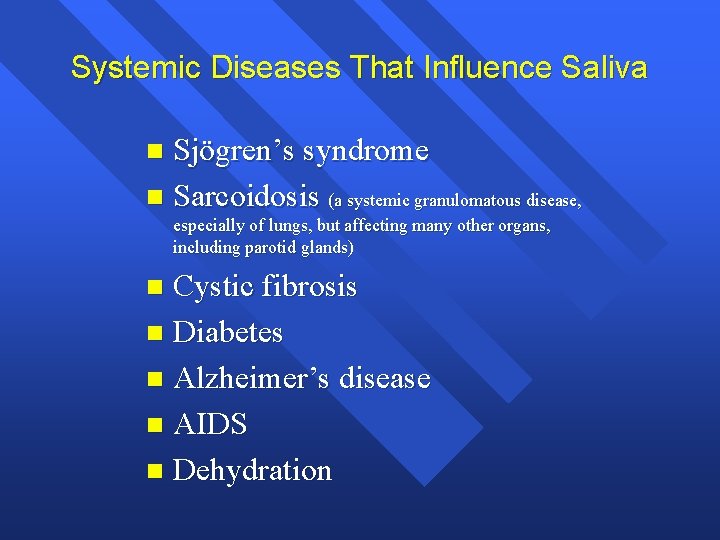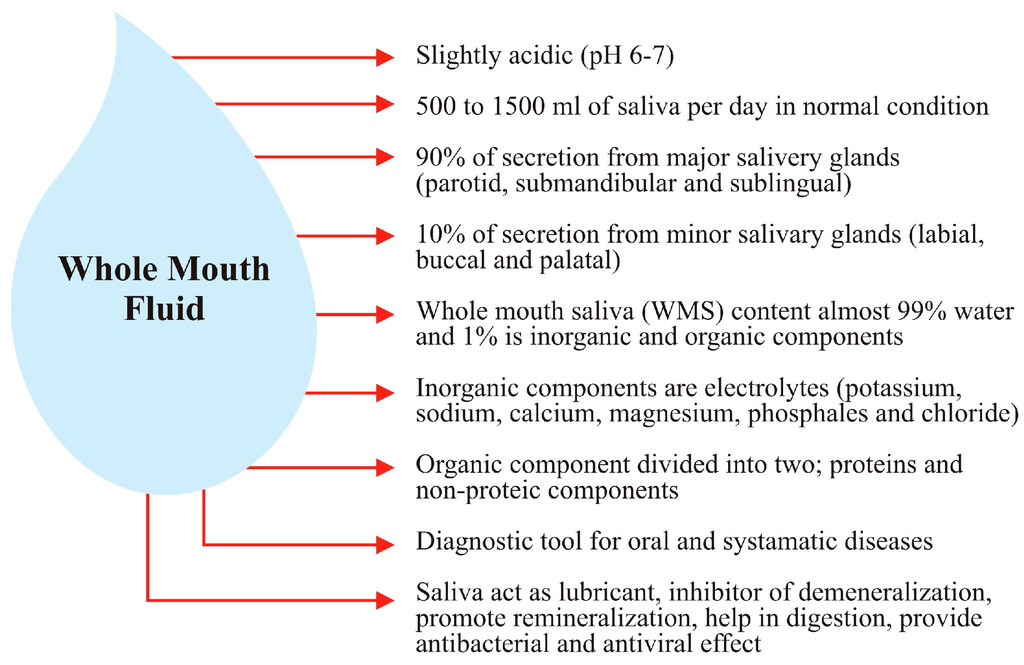
Saliva is a liquid excreted secreted and produced by salivary secretions in the oral cavity. In human beings, saliva contains 90% water, mucus, enzymes, saliva-secreting T cells, mucin, whitish blood cells, antimicrobial peptides such as lysozyme, caspase-related enzymes such as lysozyme, and antigens such as beta-lactoglobulin. Saliva also secretes other proteins and vitamins which are excreted into the urine. Saliva also helps to break down and digest protein for use in forming various body tissues.
The saliva's ability to act as a strong defense against bacteria and viral pathogens makes it an important component of the immune system. The saliva's ability to attract and bind to foreign particles may help the body's immune system to fight infection.
This ability to attract particles could explain why the mouth has so many infections
In certain instances, salivary secretion is increased as part of an overactive immune response that has been triggered by an illness or infection. The increase in saliva secretion may be due to the release of a substance called proinflammatory cytokines, which can make the mucosal lining more permeable and allow saliva to more easily access the cells where it is needed.
Bacteria are attracted to this open cell surface space, allowing the bacteria to penetrate the lining of the saliva and enter the bloodstream, where it will trigger an inflammatory response. If this process occurs frequently in the course of a day, the inflammation of the immune system can lead to an increased risk for several diseases. In such instances, the body's immune defenses become overly active and are unable to recognize the harmless bacteria that are present in saliva.
Overactivity of the immune system's ability to neutralize bacteria that is in saliva can also contribute to the development of chronic illnesses such as diabetes and arthritis. This type of immunity suppression may also lead to depression and other mood disorders. Antibiotics have the ability to eliminate some bacteria that normally reside in the saliva, but if the antibiotics are not used to control a bacterial infection, then the body's own immune system will attack these bacteria.

People who have a chronic inflammatory condition or have an ongoing infection are more at risk of developing chronic health problems that lead to the occurrence of osteoporosis, heart disease, kidney disease, and cancer. These chronic conditions may be related to their immune system being overly active and not allowing the body's normal processes of elimination to take place.
Bacteria that are able to invade the oral cavities are usually not killed by the body's natural defenses
If the body is not able to eliminate these bacteria, these organisms can cause symptoms including: sore throat, bad breath, coughing, chest pain, fever, nausea, stomach bloating, headaches, and stomach aches, muscle pains, or joint pain. A person with chronic respiratory disease may also suffer from cough that is accompanied by wheezing. There may also be a runny nose, dry cough, congestion of the nose and throat, sore eyes, nasal drainage, headache, shortness of breath, and a hoarse cough.
Although it may not seem possible, there may be instances in which bacteria in saliva can be beneficial for the immune system. For example, saliva can contain substances such as procyanidins, polysaccharides, mucins, immunoglobulin E (MGE), and antibodies that protect the body's natural defenses by binding to foreign substances and destroying them, thereby protecting the body from an infection.
Although some of these chemicals are produced by the body naturally, some may accumulate in the body and create a chronic situation of immunity suppression. Because these chemicals are generally toxic and can build up in the body, if a person has a chronic problem with allergies or suffers from cancer, it may be beneficial to reduce these levels by increasing the body's natural production of saliva-derived substances.
Many studies indicate that it may be beneficial for a person to drink more saliva after a bacterial infection in order to kill the bacteria. This is because saliva may contain substances that kill bacteria on contact and can be used to break down the bacteria's cell walls. Although this practice is unlikely to cure a bacterial infection, some research indicates that it may help to shorten the duration of an infection and allow the body to expel the bacteria in the urine or feces.
One of the most important things that a person can do to increase his or her immune system and decrease the risk of contracting chronic disease is to get plenty of fluids. However, it is not recommended that people who suffer from an infection consume excessive amounts of fluids for a prolonged period of time. Drinking only moderate amounts of fluids is beneficial for reducing the risk of an infection. In addition, it is important for people who suffer from inflammatory conditions, especially those who have chronic conditions to ensure that they have regular dental care.